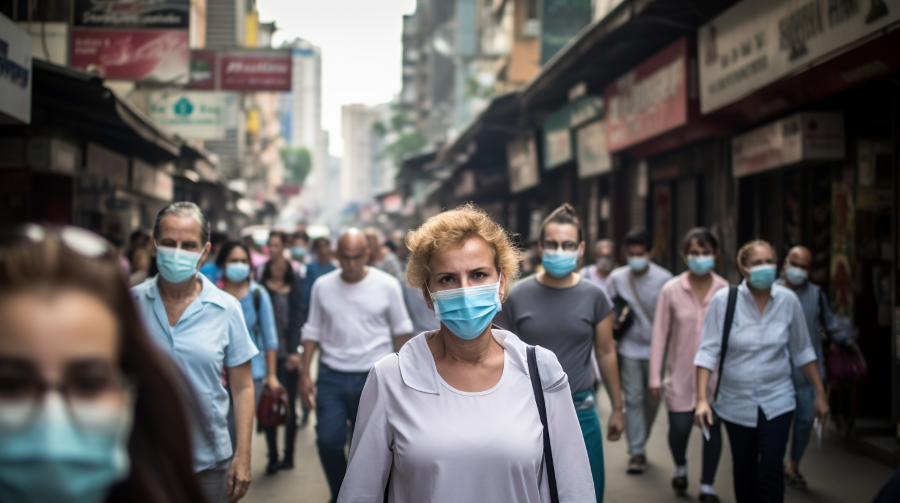
Although no longer a global emergency, COVID-19’s long-term effects, coupled with other threats such as mpox and seasonal heatwaves, may pose challenges for Europe during the summer months, cautioned the head of the World Health Organization (WHO) regional office on Tuesday.
According to Hans Kluge, the WHO’s regional director for Europe, this summer will be “the first in more than three years that many of us will enjoy without the looming threat of COVID-19.” However, he emphasized that the life-threatening virus has not completely disappeared. Speaking at a virtual press conference from Copenhagen, Kluge stated that the coronavirus continues to cause at least 1,000 new deaths each week across the region, outlining various health concerns at the beginning of the holiday season.
Dealing with “long COVID”
Data from the Institute for Health Metrics and Evaluation at the University of Washington in the United States, a partner of the WHO, suggests that over the past three years, approximately 36 million people in the region may have experienced “long COVID,” a complex condition that scientists still know very little about.
“This equates to approximately one in 30 Europeans over the past three years,” explained Dr. Kluge, underscoring the difficulties faced by those affected in returning to “normal life.” In addition to the prolonged form of the disease, “COVID-19 has exacerbated an epidemic of diseases, including cancers, cardiovascular disease, diabetes, and chronic lung illnesses, which currently account for 75 percent of mortality in our region,” he said, reiterating WHO’s call for further research to develop comprehensive diagnostics and treatments for long COVID.
Responding to the threat
Dr. Kluge urged all eligible individuals, particularly those in vulnerable groups, to get vaccinated against COVID-19. “We should ensure that at least 70 percent of these groups are vaccinated, including both primary and additional booster doses,” he said.
He also advocated for increased physical activity and a healthier lifestyle. Undertaking at least 25 minutes of moderate exercise per day, quitting smoking, reducing alcohol consumption, and limiting salt intake can significantly enhance one’s resilience against both infectious and non-communicable diseases, he added.
Extreme heat warnings
Preparing Europeans for the summer, Dr. Kluge cautioned about the likelihood of extremely hot weather ahead, which is becoming the norm rather than the exception, according to the European Union and the World Meteorological Organization.
“Last year in our region, extreme heat claimed 20,000 lives between June and August,” he said. To survive the heat, he advised limiting outdoor activities, staying hydrated, keeping homes cool, and allowing oneself more time to rest. He also urged people to “watch out for each other” and check in on elderly relatives and neighbors.
Containing mpox
Dr. Kluge mentioned a recent resurgence of mpox infections in the United States, Belgium, the Netherlands, Spain, and the United Kingdom.
Although only 22 new mpox cases were reported in the European region in May, he recommended that individuals in high-risk groups get vaccinated, minimize contact with others when experiencing symptoms, and avoid close physical contact, including sexual contact, with someone who has mpox.
Applauding the United Kingdom’s efforts to continue its vaccination program, he encouraged other countries to further reduce barriers to testing, vaccination, and care for individuals in high-risk groups.

